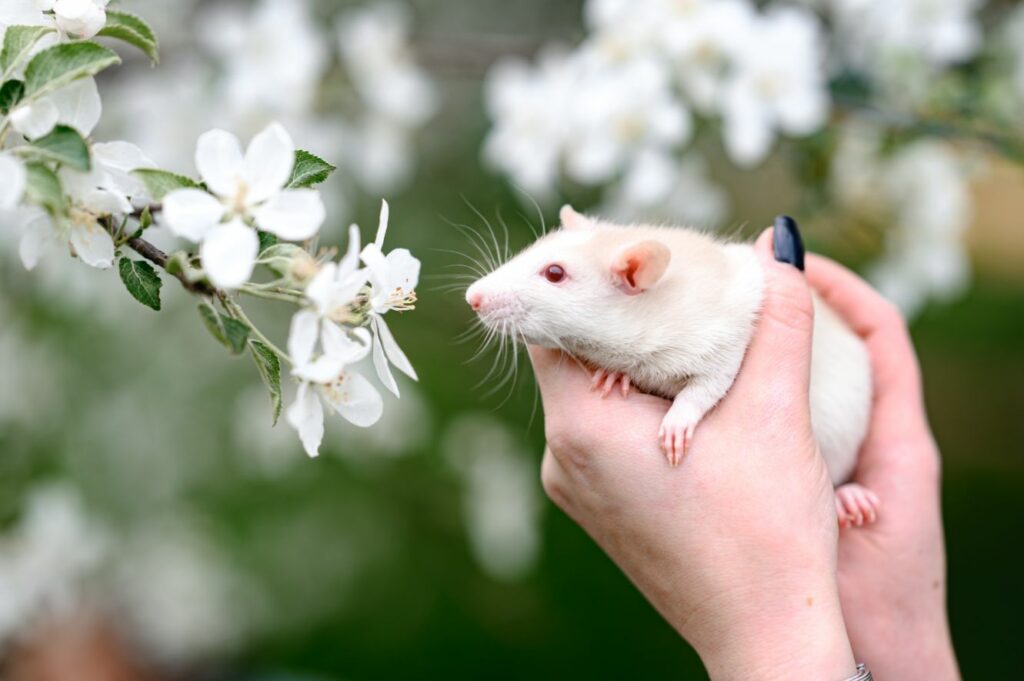As someone who’s owned pet rats the majority of my life, I have seen firsthand how stress can affect these small animals.
Rats are intelligent and social creatures that thrive in environments that are both physically and mentally stimulating.
When rats experience stress, it can have a significant impact on their health and well-being. In this blog post, we will explore the different types of stress that rats can experience, the symptoms of stress, the causes, and the effects that stress can have on these small animals.
We will also discuss how to prevent and treat stress in rats.

Stress in Rats
What is stress in rats?
Stress is a natural response that occurs when an animal is faced with a situation that it perceives as a threat. The stress response is a complex physiological response that prepares the body to either fight or flee the threat. In rats, stress can manifest itself in various ways, including physical symptoms and behavioral changes.
While stress in small amounts can be beneficial as it helps rats deal with challenges, prolonged exposure to stress can have severe consequences.
Types of Stress in Rats
Acute stress
Acute stress is a short-term response to a perceived threat. This type of stress can help rats escape danger by triggering the fight or flight response.
Examples of acute stress in rats include sudden loud noises or the presence of predators.
Chronic stress
Chronic stress is long-term exposure to stressors that the rat cannot escape. Chronic stress can be caused by poor living conditions, social isolation, and noise pollution, among other factors.
Chronic stress can have significant effects on the rat’s health and well-being.
Symptoms of Stress in Rats
Physical symptoms
Physical symptoms of stress in rats can include changes in appetite, weight loss, fur loss, and a weakened immune system. Stress can also cause gastrointestinal problems, such as diarrhea or constipation.
Behavioral symptoms
Behavioral symptoms of stress in rats can include increased aggression, decreased socialization, and hiding. Stressed rats may also exhibit repetitive behaviors, such as excessive grooming or biting their own tails.
Causes of Stress in Rats
Poor living conditions
Poor living conditions can be a significant source of stress for rats. Overcrowding, inadequate space, and lack of enrichment can all contribute to chronic stress.
Noise pollution
Rats have sensitive hearing and can be easily stressed by loud or constant noise. Noise pollution can come from outside sources or even within the rat’s living environment.
Social isolation
Rats are social animals that thrive on interaction with other rats. Social isolation can cause chronic stress and behavioral changes in rats.
Effects of Stress on Rats
Impact on immune system
Stress can have a significant impact on the rat’s immune system, making them more susceptible to illness and disease.
Impact on behavior
Stress can cause behavioral changes in rats, including increased aggression and decreased socialization. These changes can impact the rat’s quality of life and well-being.
Impact on lifespan
Chronic stress can have a significant impact on the rat’s lifespan. Studies have shown that rats exposed to chronic stress have a shorter lifespan than those in less stressful environments.
Prevention of Stress in Rats
Creating a comfortable living environment
Providing rats with adequate space, enrichment, and housing can help prevent chronic stress.
Socialization
Socializing rats with other rats can help prevent social isolation and promote a healthy, active lifestyle.
Reducing noise pollution
Reducing noise pollution in the rat’s living environment can help prevent stress.
Regular veterinary checkups
Regular veterinary checkups can help detect and treat stress-related illnesses and ensure that rats are in good health.
Treatment of Stress in Rats
Medications
In some cases, medications may be needed to help treat stress-related illnesses in rats.
Behavior modification techniques
Behavior modification techniques, such as positive reinforcement training, can help reduce stress and promote healthy behaviors in rats.
Conclusion
Stress in rats can have significant effects on their health and well-being. Chronic stress can cause physical and behavioral changes, impact the immune system, and even shorten the rat’s lifespan.
I know firsthand the importance of providing rats with a comfortable and enriching living environment. By understanding the causes and symptoms of stress in rats, we can take steps to prevent and treat stress-related illnesses in these small animals.
As responsible pet owners, it is our duty to provide our rats with the best possible care, including regular veterinary checkups, socialization, and a stress-free living environment.
- How Long Do American Eskimo Dogs Live? Important Factors and Care Tips - September 29, 2023
- Do American Bulldogs Need Grooming? Essential Tips and Care Guidelines - September 29, 2023
- Do Bengal Cats Enjoy Playing? Essential Tips for Keeping Them Active - September 29, 2023